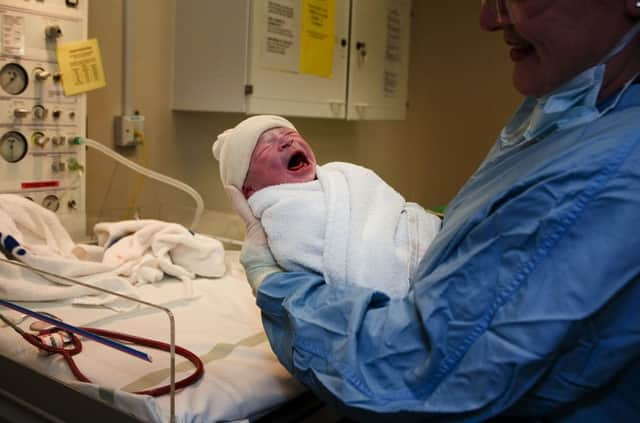Scots NHS boards lack midwives to deal with ‘baby blues’


Around one in ten Scottish women suffer some form of depression and anxiety both during pregnancy and after birth. However, research by the NSPCC Scotland and Maternal Mental Health Scotland has found that ten of the 14 health boards had no midwifery staff with accredited mental health training.
Gillian Smith, director of the Royal College of Midwives (RCM), highlighted the issue as a key area for progress as part of a series of suggestions to improve maternity care in Scotland.
Advertisement
Hide AdAdvertisement
Hide AdShe also called for NHS bosses to increase the number of consultant midwives and ensure newly qualified midwives were offered permanent posts to secure the workforce.
The RCM has previously warned that Scotland faces a “recruitment timebomb” as more than a third of midwives in Scotland are over 50, with many opting to retire early.
Ms Smith said: “Scotland’s maternity services are performing incredibly well and we can be justifiably proud of them. The government recognise the value of midwives and good maternity care to the quality of care women receive, and to the health of the women and the population as a whole.
“However, there are areas where we can and should be looking to make improvements including better care for pregnant women with mental health problems and better continuity of care.
“Scotland also needs to be ensuring it secures its future midwifery workforce.”
The union also called for the Scottish Government to protect the bursary for student midwives in the wake of potential cuts to provision in England.
Public health minister Maureen Watt promised to consider the suggestions as part of a review into Scottish maternity services due to be completed in 2016.
She said: “We are committed to ensuring mums and babies get the best care from our maternity services and hugely value the role played by midwives.
Advertisement
Hide AdAdvertisement
Hide Ad“It is thanks to the high-quality care they provide that more than 90 per cent of women rated their care during pregnancy and birth very positively in a recent survey.”
There is not a shortage of midwives in Scotland, in contrast England, according to Ms Watt.
She added: “This should demonstrate that we are totally committed to supporting our midwifery workforce and we have confirmed that the Nursing and Midwifery Student Bursary and allowances are to be protected at existing levels in 2016-17.
“It is important that boards plan services to meet the needs of local women and families. This includes having the right number of midwives and other specialists, so that families can have full access to a range of services dependant on their needs.”